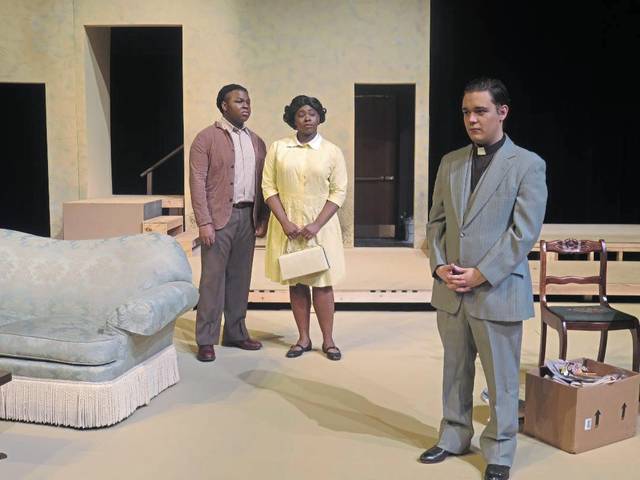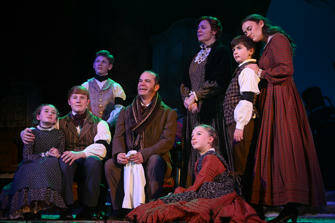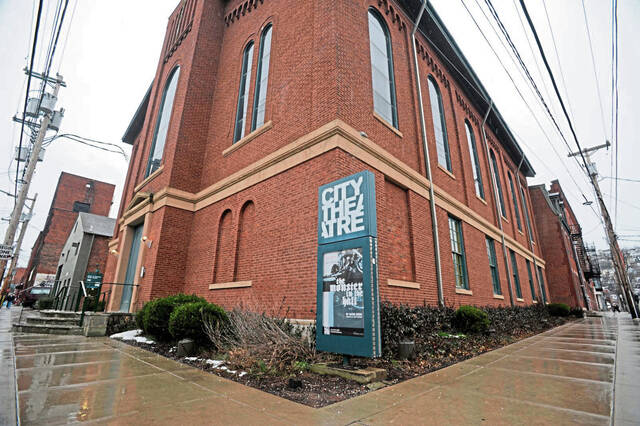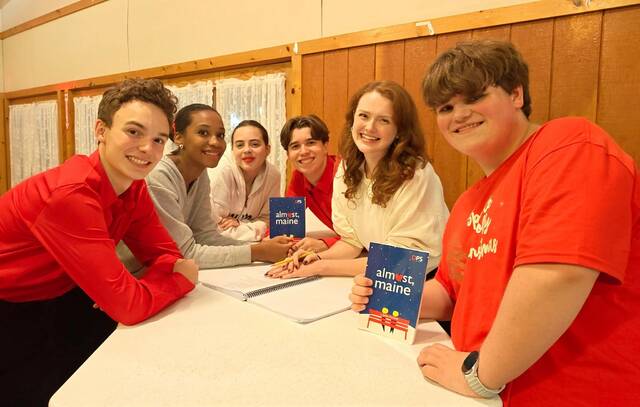Seton Hill University Theatre will present a contemporary play that won a Pulitzer Prize (2011) and Tony Award for Best Play (2012) with its production of “Clybourne Park” Feb. 22-March 1.
Director Denise Pullen, associate professor of theater at Seton Hill University, wants audiences to be aware that while the play is “purposeful and powerful,” it’s also recommended for adults, with its strong themes and language.
Inspired by Lorraine Hansberry’s play, “A Raisin in the Sun (1959),” “Clybourne Park” by Bruce Norris (2010) is a satire that tackles race relations issues that Pullen has arranged to address further after one of the show’s matinees.
Addressing important issues
“Following our 2 p.m. performance on Sunday, Feb. 24, we will have a panel led by Seton Hill General Counsel Imogene Cathey that includes a fair housing attorney, a community organizer and nutritionists discussing the issues the play presents,” Pullen said.
The director said there’s good reason why “Clybourne Park” is produced often, especially by student theater groups.
“It is intelligent, funny and addresses themes of social injustice that persist in our country,” she said. “From a practical perspective, it’s a right-sized play that offers great acting challenges for student actors and technicians.”
The play is divided into different time periods, with Act I taking place in 1959 and Act II in 2009.
Dealing with tough topics
In both eras, “despite the best intentions of some characters, dialogue between the races breaks down – in fact, explodes – baring raw truths about our inability to transcend deep-set biases and resentment,” Pullen said.
“The squirming we experience in Act I gives way to full-out shock and the shame we feel for laughing in the second act. Nobody is spared full exposure.”
Seton Hill student actors who portray different characters in each act are meeting the challenge of learning lines in a script “that steps all over itself with interruptions and overlaps,” their director said. “They have to keep control as the dialogue spirals out of control.”
One of Pullen’s biggest challenges is in “bringing out the raw truth of racism in a meaningful, yet entertaining way for our audiences.”
Malcolm McGraw of Pittsburgh, a junior musical theater major, said he can identify with both his characters’ perspectives, being an African American person in America.
Opening a dialogue
“Also, the themes in this play are still ongoing today and I wanted to bring that to the forefront,” he said. “My biggest acting challenge is making sure to understand the time because I would be the first to call out an injustice – but given the time period, I wouldn’t be able to that. Holding back when you know something is wrong is something that really gets under my skin.”
He said the play “opens a dialogue for a conversation that we as people need to have.”
Cameron Nickel, a junior theater performance and business administration major at Seton Hill, said he is fascinated with the ideas and parallels presented through the course of the play.
“We cannot allow the issues presented in the play to simply not be talked about, and yet we must find a way to keep those conversations from breaking down all the while,” Nickel said.
“Norris offers no immediate solution to this issue, nor does he let either side of the conflict off the hook, but implores us to struggle through and come to a better understanding of each other whatever way possible. I think that is something we all could use right now.”
Layne Lueckert of Clairton, a junior musical theater major, agreed that satires such as “Clybourne Park” can be used to fuel serious conversations that need to be had in today’s society.
“It deals with intense subject matters that make the performers uncomfortable and I’m sure the audience will feel the same,” she said. “It’s very eye-opening.”








